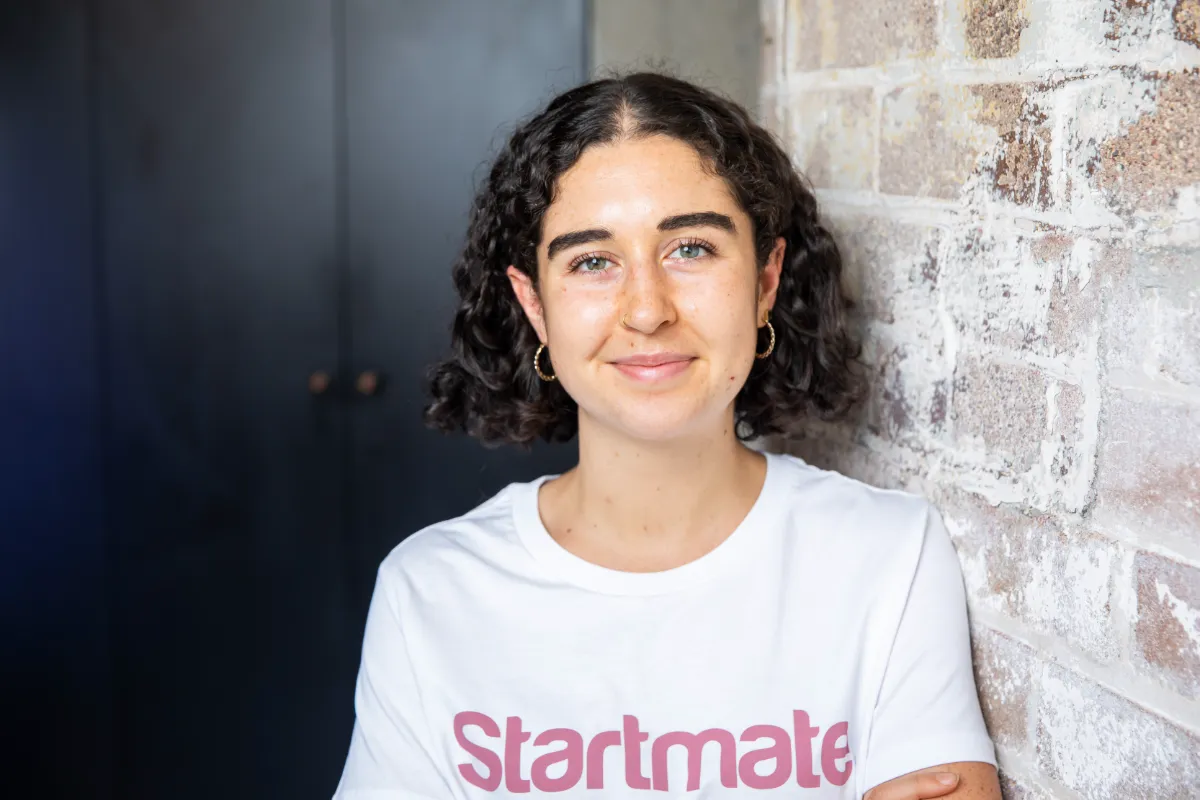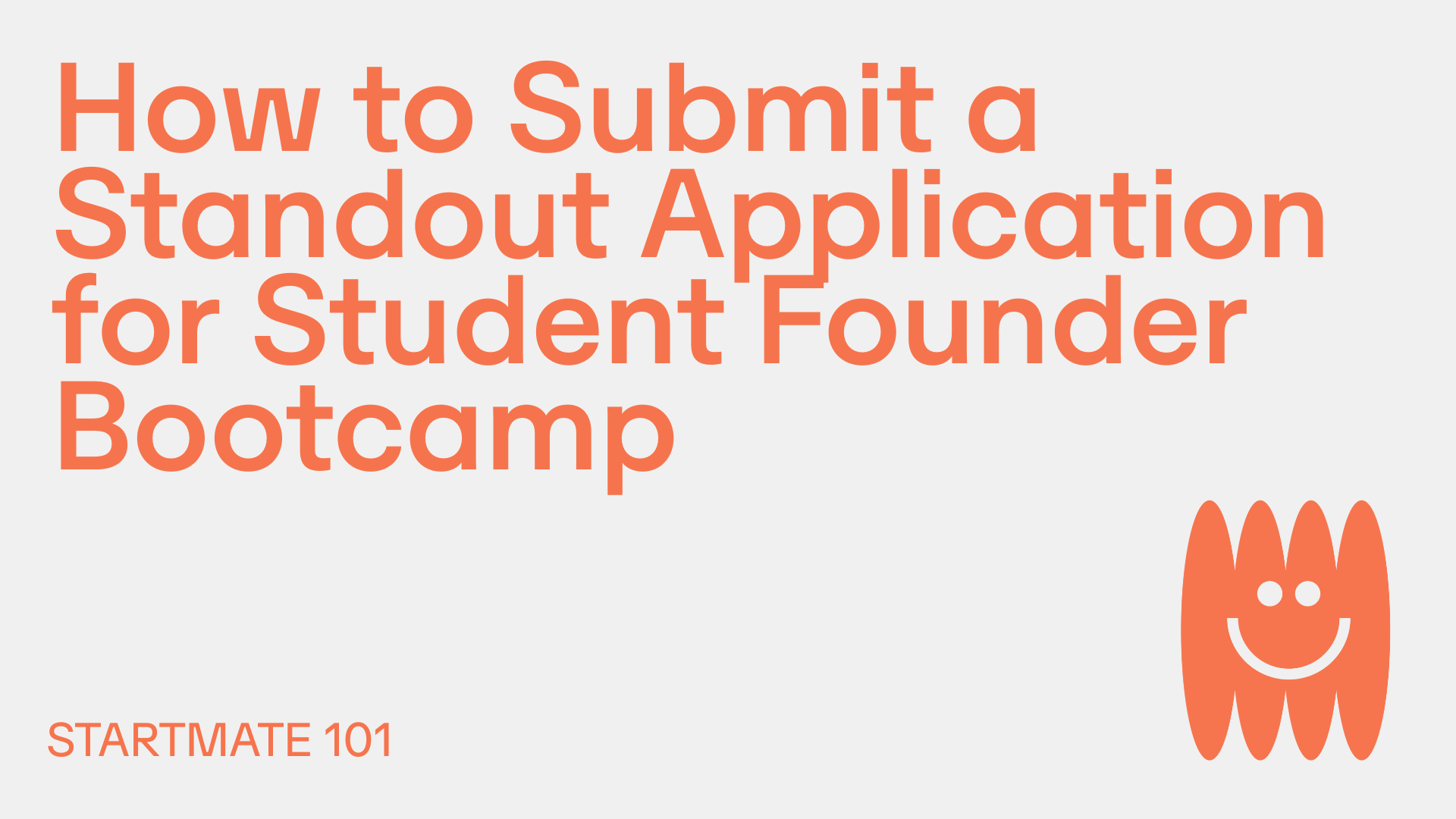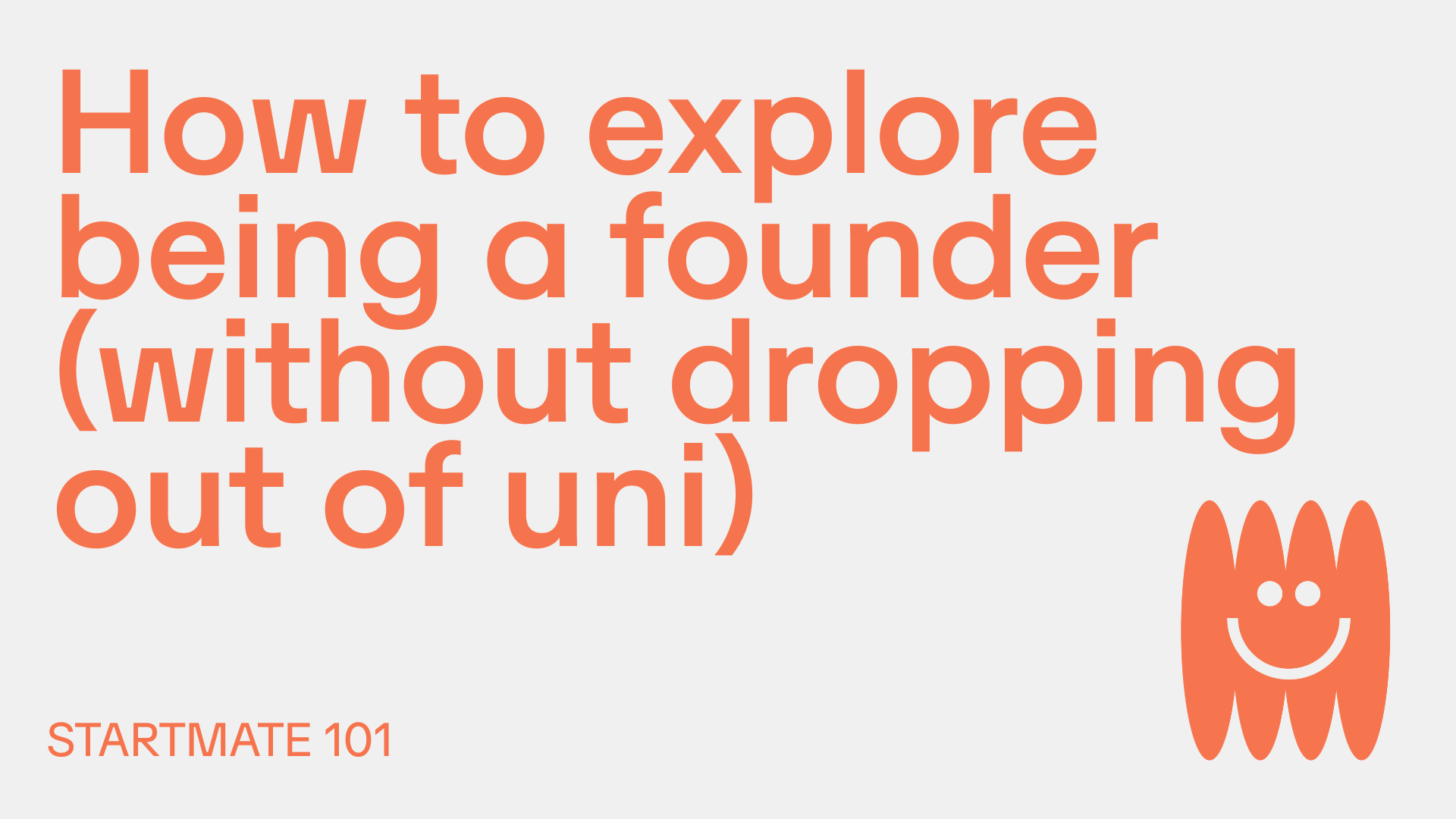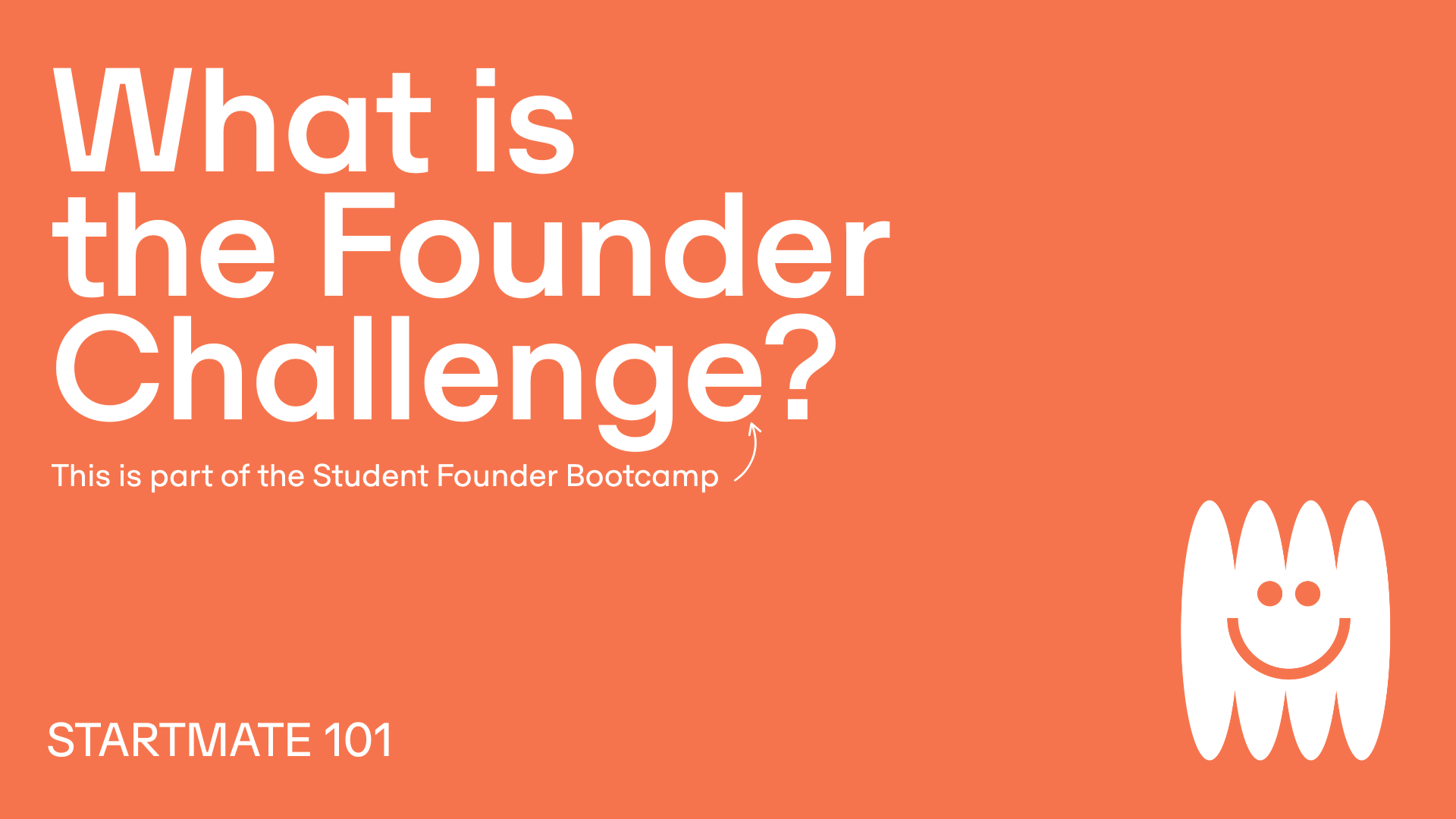Time-poor founders and operators are often hesitant to take on interns, concerned it will add to rather than reduce their workloads. But the right intern can “be a dream”, says Normal Founder Lucy Wark.
“I’m pretty time-poor. My to-do list is three-people's-jobs long,” she tells me.
“Having an intern means having a safe pair of hands you can hand off part of your job to. That’s what every manager wants.”
This pair of safe hands belong to Renee Zhang, a Startmate Student Fellowship alumni and former Atlassian Associate Product Manager.
Renee joined the Eucalyptus team as an intern in July 2021, and in Feb 2022 was offered a position as Associate.
Obviously, this is a dream outcome for busy managers and ambitious interns alike, so I sat down with Lucy and Renee to get their take on finding the perfect intern and setting them up for success.
How to find an amazing intern
When it comes to choosing the right intern, grades and clubs are less important than you might think, Lucy says.
“The best way of picking out the people who are going to make a huge impact is combining work tests with interviews for cultural-fit,” she says.
“I actually remember seeing Renee’s case study and thinking ‘holy shit, that’s so good’. I was amazed by the quality. Then I read her resume and realised that she was still a student and I thought ‘that is insane’.
“I'm sure Renee felt like she actually had to ace the interview, but really, she just had to avoid tripping over herself. Her case study was that good.”
As a Women Fellowship alumni herself, Lucy is a big advocate of hiring from Startmate’s Fellowship pool.
“I came through the Women Fellowship having been at McKinsey and having worked at a couple of startups. This means I’ve seen the calibre of people who do the Fellowships,” she says.
“The thing I really like about Startmate is that the term ‘intern’ is something of a misnomer. The people going through the Student Fellowship are super-high-potential hires who pick things up really quickly.
“If you give work tests to a bunch of Fellows, you will see some amazing candidates, and their capabilities will far exceed what’s on their formal resume.”
Creating a win-win environment
In order to set up an intern for success, you need to balance their professional priorities with your own, Lucy tells me.
For example, early on, Renee’s priorities were exposure to healthcare, the opportunity to develop new and existing skills and the opportunity to work on launching a new brand, and Lucy’s priority was the completion of considered, thorough user research for a new Normal range.
With these priorities in mind, Renee was tasked with a user research project for Normal, and then given the opportunity to own an entire piece of the strategy for Eucalyptus’ new menopause brand Juniper.
“I did one-month chunks with Lucy on Normal and Niamh on Software,” Renee tells me.
“When I started, Lucy did a great job of setting up everything for me and giving me all the context, but then handing it off to me so that I could be responsible for a huge piece of work.
“There was a lot of trust between us. It was a really efficient relationship.
“My work for Normal was a user research piece into launching a new category of sex toys. It involved talking to customers and really finding out what they want, and then actually designing and sketching out toys, talking with manufacturers, and working with our 3D renderer.
“A huge reason why I wanted to go into startups was to be able to get my hands dirty and implement all the findings and the strategy behind a project, so I really enjoyed the project.
“My work on Software was again user research, but involved working with product managers on software development and the design of the app.
“I also spent a lot of time just getting to know the team, which has doubled since I started, and learning about Euc’s vision moving into the chronic disease space.
“My involvement in launching Juniper was a highlight. Being able to do work on various projects across Euc's brands was definitely a huge perk of being an intern.”
Choosing startups after university
You might be surprised to learn that Renee wasn’t always on the startup-after-graduation path.
“I always thought I needed to get into a corporate grad program,” she admits.
“I actually had Atlassian’s Associate Product Manager Program lined up; I was really happy because there’s a lot of structure and it’s best-in-class PM training. Then I came across Eucalyptus, did a two-month internship, and thought, ‘I could see myself working here full-time’.
“I got to a point where I had to make a decision between Atlassian or Eucalyptus.”
In the end, she chose Eucalyptus so she could optimise for learning and career progression.
"You learn so much at a startup," she explains.
"Yes, it will be a less structured environment, but you’re able to take control of and design your own role.
"And because of a startup’s pace of growth, the career progression is incredible. It's not jumping one layer by one layer like you would do at a corporate. You might become a head of something in the span of one or two years.
"It's really scary for people to take that step and say ‘I'm not going to take this big brand name, I’m going to go for a startup and optimise for my learning’. But I think, ultimately, choosing a startup will pay off in the future."
Lucy agrees, adding that “people also underestimate the value of startup experience if you do want to pursue a corporate path or learn a standardised skillset”.
“Being able to talk to corporate employers about the fact that you’ve done an enormous amount of internal entrepreneurship and personal growth in a less structured environment is actually an incredible selling point," Lucy says.
“When I was going to McKinsey, for example, my grades got me in the door, but it was the startup experience I'd had in university that actually got me hired.
“My advice is don't just pick the obvious pathway. Lots of corporates have big budgets and HR departments that can get them in front of you on a university campus, but that doesn't necessarily mean they are the best choice.”








